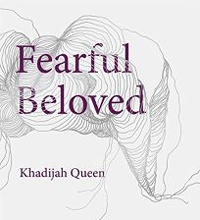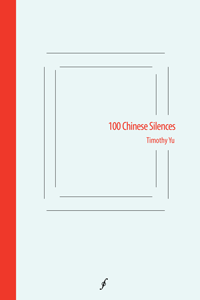
Little Arias
Kristen Case
New Issues Poetry & Prose, $15 (paper)
In “Nest,” a poem in the titular section of her first book, Little Arias, Kristen Case writes, “we both know a capacity for vacancy / is what you came for.” This is a sly irony in a text full of philosophical, material, literary, and bodily conversations, encapsulating her lyric impulse to expose and theorize the spaces between “being with” and the often-solitary acts of writing, reading, and thinking. This tension, which is being reimagined by women writers in newly productive ways, asks what it means to engage simultaneously in intellectual labor and bodily labor. In “Landscape with Childbirth and Pronoun,” Case writes, “I do not know how to tell you / what the presence of another body / inside your body does to the / grammar of sentences.” And in “Retrospect,” “when the object that is called my body / stopped making milk / spaces opened between things.” These startlingly beautiful descriptions are set in conversation with the words of others—Dickinson, Emerson, James, Thoreau, Heidegger, Wittgenstein, Bachelard, Butler—at once producing readings of their texts (opening new spaces) and being made by them. The linguistic act, for Case, seems to be one in which a person is both emptied and produced, as in the doubling that occurs at the moment of birth: “a radiant wave that inscribes itself in the space of the lost, becomes a laboring within that space, yielding at last a new body.”
—Rowena Kennedy-Epstein

Olio
Tyehimba Jess
Wave Books, $25 (paper)
Tyehimba Jess’s ambitious Olio gives new life to mostly unrecorded blues and ragtime performers like Blind Tom, Millie and Christine McKoy, John William “Blind” Boone, and Sissieretta Jones. Early on there is a call to “fix your eyes on the flex of these first-generation-freed voices,” and much of what is found in the collections’ poems, interviews, quotations, and narratives are imagined responses. In “Blind Tom Plays for Confederate Troops, 1863,” the forced performance turns into protest: “Back turned to his piano, / he leans like a runner about to throw / himself to freedom through forest bramble—.” The section on Millie Christine, conjoined twins, complicates the idea of double consciousness that Du Bois described in The Souls of Black Folk. Instead of division, there is unity: “We’ve mended two songs into one dark skin” and “I love this burden that we’ve been given— / to ride the shared wake of one blood’s rhythm.” Centuries of abuse, mistreatment, and misappropriation pervade Jess’s poems and are further manifested in line drawings by Jessica Lynne Brown: figures and objects that seem ready to float off the page and into the reader’s psyche. Centerfold-style, perforated documents such as “The Whitman Amateur Minstrel Guide and Burnt Cork Encyclopedia” encourage us to literally remove pages from history. The split from the past becomes an act of defiance, the folding and creation of new shapes (cylinders and Moebius strips), a reconstruction. Separation in Olio becomes liberation for African Americans: “Let this belting be our / unbinding. . . . Let the country / be mine. Let this country / be mine.” In the repetition of these lines the prayer becomes a chorus, a hope that reverberates beyond the confines of paper.
—Dana De Greff

Fearful Beloved
Khadijah Queen
ArgosBooks, $16 (paper)
“Formless, four letter name / I am ever curious” beckons Khadijah Queen as she confronts amorphous and elusive manifestations of fear in Fearful Beloved, her tangled sequences featuring lyric, narrative, epistolary, and prose forms. Queen is a calculated observer, interested in both the psychological and physical conditions of fear. Her poems are brief sketches of the foreign but deeply intertwined bodies of doubt, anxiety, and survival. She listens to “a sound made by a living animal / is a voice” and watches as fear “slink[s] into the situation / when you show up / in my reflection or concave echoes.” In “Dear Fear,” Queen portrays a self that is compliant in its own possession—“I allowed avoidance to breed you, fear / You were so big once / I couldn’t see my reflection in the mirror”—while the piece’s epistolary and apostrophic form assures the reader of complete control: “Like traffic, / we choose when you are an annoyance / and when to fall in step with you.” Another series containing variations on the title “Inside a House” illustrates the confinement of the feminine in a grotesque yet lyrical display of the domestic: “Inside a girl checked herself in the mirror for emotional seepage.” In these sirenic poems, Queen summons the fearful beloved, who is perhaps a sinister and vengeful self of the same name: “When I speak / to you / I also speak to myself, once afraid.”
—Rachel Finkelstein

100 Chinese Silences
Timothy Yu
Les Figues Press, $17 (paper)
Timothy Yu’s debut collection, 100 Chinese Silences, opens with a poem responding to Billy Collins, “Grave”: “What do you think of this poem / I asked the tomb of my unknown grandfather / with its livid quiet marble.” Since the notion of “100 Chinese silences” is Collins’s invention, you’ll have to read the original to fully appreciate Yu’s reverse-appropriation. Yu’s cultural inheritance is regarded as open domain: a blank, Zen-like screen for white writers. Projecting his own language onto the screen of these writers is his act of poetic resistance. “Where did this Chinese man come from? We don’t have any Chinese people here,” demands Charlie Webster, Chairman of the Maine Republican Party, in the epigraph to “Chinese Silence No. 62.” Yu’s speaker responds: “We come from every nightmare scene / in which our silent black-haired heads / fill every inch of a paper screen.” While Yu directs his eye back upon the Western gaze, he also looks inward, broaching the model-minority myth as well as the reality that Asian Americans have not yet been able to band together with a strong political voice and are therefore virtually invisible in the political process: “We will all become / thoroughly Asian / in our small businesses of quiet.” Is Yu critiquing capitalism, Asian business owners, himself, or the stereotype? At times, the irony can become difficult to decipher. Indeed, his poems hold multiple meanings, opening a much-needed conversation about how Asian American voices are simultaneously appropriated and silenced.
—Safia Jama







